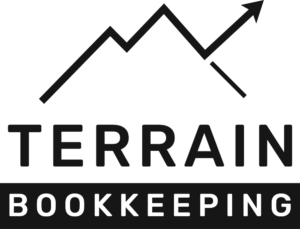January may feel far away, but when it comes to 1099 filing for your vet clinic, the time to get ahead is now.
Every year, veterinary clinics scramble in January to gather contractor info, verify payments, and beat IRS deadlines. With a little planning in the fall, your vet clinic can make tax season smooth instead of stressful.
This guide breaks down what vet clinics need to know about 1099s, who gets them, and how to prepare now — so January doesn’t turn into a paperwork panic.
Why 1099s Matter for Vet Clinics
 1099s are IRS forms your veterinary clinic uses to report payments made to non-employees and vendors.
1099s are IRS forms your veterinary clinic uses to report payments made to non-employees and vendors.
For many vet clinics, this includes independent contractors and service providers paid outside payroll.
Staying on top of 1099s is an important part of your clinic’s bookkeeping services and ensures your records are accurate for tax time.
Why it matters:
- The IRS cross-checks your 1099s with the recipient’s tax return.
- Missing or incorrect forms can lead to hefty penalties (ranging from $60 to $330 per form in 2024, depending on how late they are).
- Having your records ready also makes life much easier for your CPA come tax time.
Which 1099s Do Vet Clinics Need to Worry About?
The two most common are:
1099-NEC (Nonemployee Compensation)
 This is the one most veterinary practices deal with. It reports payments of $600 or more to non-employees for services during the year ONLY if you pay them via cash, check or ACH.
This is the one most veterinary practices deal with. It reports payments of $600 or more to non-employees for services during the year ONLY if you pay them via cash, check or ACH.
For vet clinics, common examples include:
- Relief vets / locum vets you bring in to cover shifts.
- Specialist consultants (HR, marketing, cleaning services, IT, bookkeeping, etc.).
- Independent contractors providing cleaning, landscaping, or maintenance (if they’re not incorporated).
- Vendors paid in cash, check, or bank transfer (not via credit card or PayPal — those are reported separately)
- Trainers or behaviorists paid as contractors.
- Other individuals or partnerships providing services outside of payroll.
If you paid $600 or more to a contractor during the year, you’ll likely need to issue them a 1099-NEC.
👉 Note: Payments to corporations usually don’t need a 1099, but there are exceptions — most notably attorneys.
1099-MISC
Less common, but still relevant in certain situations. Examples:
- Rent payments ($600+ to a landlord who isn’t a corporation).
- Legal settlement payments.
- Prizes or awards unrelated to services (rare, but possible).
For most practices, the 1099-NEC is the priority, with 1099-MISC forms popping up only occasionally.
Why Start Early?
 Because January comes fast.
Because January comes fast.
For 2025 payments, the deadline to file most 1099s with the IRS and send copies to contractors is January 31, 2026. Missing or incorrect forms can trigger IRS penalties ranging from $60 to $330 per form, depending on how late they are. If the IRS decides you intentionally disregarded the rules, the penalty jumps to $660 per form, with no cap. [Amounts are based on current IRS guidelines and may be adjusted annually.]
That leaves very little wiggle room if you’re still gathering information after the holidays. Preparing your vet clinic’s 1099s early:
- Avoids chasing down missing W-9s in a panic
- Reduces errors that could trigger IRS notices
- Gives your bookkeeper or CPA the time they need to file accurately
- Ensures a smoother (and less stressful) start to the new year
Key Deadlines to Know for Vet Clinics (for 2025 payments, filed in 2026)
Missing these dates can mean penalties that add up fast, especially if you work with multiple relief vets or contractors.
| Date | Deadline |
|---|---|
| Dec 31, 2025 | 2025 tax year ends |
| Jan 31, 2026 | 1099-NEC forms must be filed with the IRS and copies sent to recipients |
| Jan 31, 2026 | 1099-MISC form copies must be sent to recipients |
| Feb 28, 2026 | Paper filing deadline for 1099-MISC with the IRS |
| Mar 31, 2026 | Electronic filing deadline for 1099-MISC |
👉 Note: While the 1099-MISC can be filed later with the IRS, recipients must get their copy by January 31, 2026.
How to Prepare Now (Instead of in a Panic Later)
Here’s your fall checklist for getting ahead:
1. Keep Everything in One Place
Use your accounting software (like QuickBooks Online) to track contractor payments.
2. Review your vendor list
Run a report in QuickBooks (or your accounting software) of everyone your vet clinic has paid this year. Flag anyone who:
- Is an individual, sole proprietor, or partnership
- Has been paid $600 or more outside of payroll for services via cash, check or ACH
This gives you time to flag any gray areas or confirm vendor details.
3. Gather W-9s Early
 If you haven’t already, request a completed W-9 form from every contractor and vendor you’ve paid this year. Store them securely so you’re not scrambling later.
If you haven’t already, request a completed W-9 form from every contractor and vendor you’ve paid this year. Store them securely so you’re not scrambling later.
The W-9 is the form that gives you the info you’ll need for 1099s (name, address, tax ID).
- Best practice: Request a W-9 from every new contractor before you pay them.
- If you’re missing any, now’s the time to track them down.
Why? If you don’t have a W-9 on file, you won’t have the legal name, address, or tax ID you need to issue a 1099. Tracking this down in January is stressful (and sometimes impossible if the contractor has moved on). Collecting it up front ensures you’re covered long before filing season.
Pro tip: Make W-9 collection part of your onboarding for relief vets and contractors. That way, you’re always prepared. Your remote bookkeeper can help you track W-9s and vendor info efficiently.
4. Double-Check Contact Info
Contractor moved? Changed their business name? Verifying addresses and legal business names now will prevent returned mail and rejected filings later.
5. Double-check payment records
Make sure your bookkeeping system separates contractor payments correctly as part of your vet clinic’s bookkeeping workflow. For example, credit card payments may not require a 1099, but check with your bookkeeper or CPA for specifics.
6. Talk to Your Bookkeeper or CPA
If you’re working with a bookkeeping service who specializes in vet clinics (like us 👋), confirm whether they’ll be filing 1099s on your behalf or if you’re responsible. Clear roles now = fewer headaches in January.
7. Decide how you’ll file
You can:
- File 1099s through your accounting software (like QuickBooks Online).
- Use an IRS-approved e-file service.
- Have your vet clinic bookkeeper or CPA handle it for you.
8. Set internal reminders
Mark January 10th on your calendar as your internal deadline to finalize everything. That way you’re not pushing up against the IRS cutoff.
What Happens If You Miss the Deadline?
Late or incorrect 1099s can lead to IRS penalties, which stack up quickly. Starting early not only saves money but also keeps your clinic in good standing.
FAQ: 1099s for Veterinary Clinics
Do small vet clinics really need to file 1099s?
Yes. Even if your veterinary clinic only hires one relief vet or a single contractor, you’re required to issue a 1099 if payments reach $600 or more in a year. Proper 1099 preparation helps your clinic stay compliant and avoids IRS penalties.
Can a remote bookkeeper handle 1099 filing for my veterinary clinic?
Absolutely. A remote bookkeeper – especially one that specializes in bookkeeping for vet clinics like Terrain Bookkeeping 😉 – can organize your contractor and vendor records and even file 1099s on your behalf. Using a bookkeeping service for vet clinics ensures your forms are accurate, submitted on time, and compliant with IRS requirements.
How can I avoid IRS penalties for 1099 filing in my vet clinic?
Start early. Prepare your 1099s and gather W-9s in the fall, double-check payment records, and work with your CPA or veterinary bookkeeping service. Filing accurate forms by the January 31 deadline for recipients — and by the IRS deadlines for NEC and MISC forms — is the best way to prevent penalties.
Do I need to send 1099s to corporations?
Usually no, but yes for attorneys and a few other exceptions. When in doubt, collect a W-9 and check with your bookkeeper or CPA.
What if I forget or file late?
It’s better to file late than not at all. Penalties start at $60 per form and increase the later you file, up to $330 per form. If the IRS believes you intentionally disregarded the requirement, the penalty can be much higher.
Can I prepare my Vet Clinic 1099s myself?
You can, especially through QuickBooks or e-file systems. But many clinics prefer to have a bookkeeper or CPA handle it, since errors can be costly.
The Bottom Line
January may feel far off, but when it comes to 1099s for your vet clinic, waiting until the last minute is a recipe for stress (and potential penalties).
By reviewing your contractors now, collecting W-9s, and keeping your records clean, you’ll glide through the filing season with confidence.
Need help with 1099 filing for your vet clinic?
📅 Want peace of mind this filing season? Let’s talk about how we can make 1099 prep easy, accurate, and stress-free for your practice.
At Terrain Bookkeeping, we help veterinary clinics across the country stay organized, compliant, and stress-free when it comes to tax season and, frankly, year-round. From organizing W-9s to filing 1099s on your behalf, we make the process painless — so you can stay focused on patient care.
📅 Want help prepping for 1099 season? Let’s talk about how we can take this off your plate.



